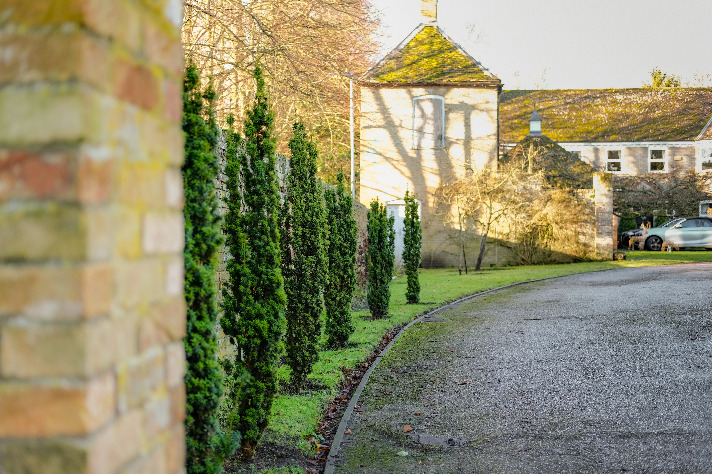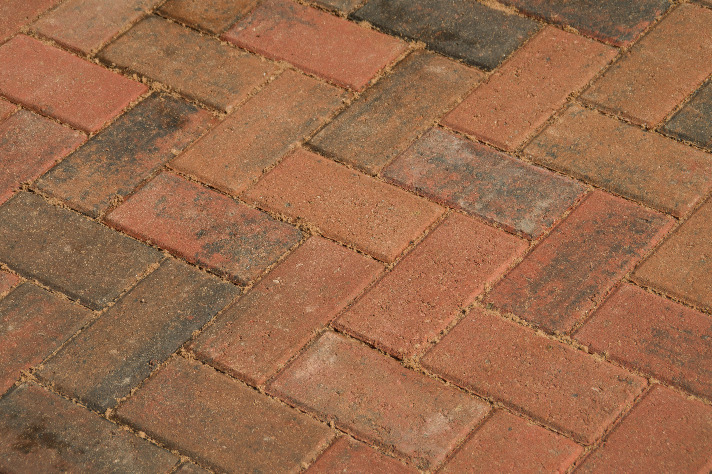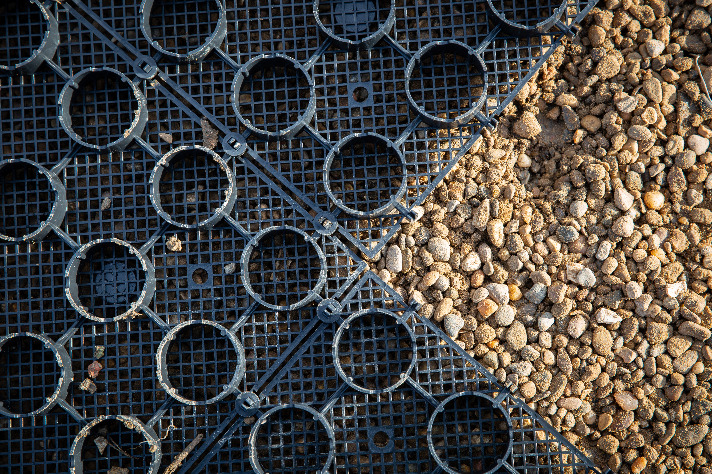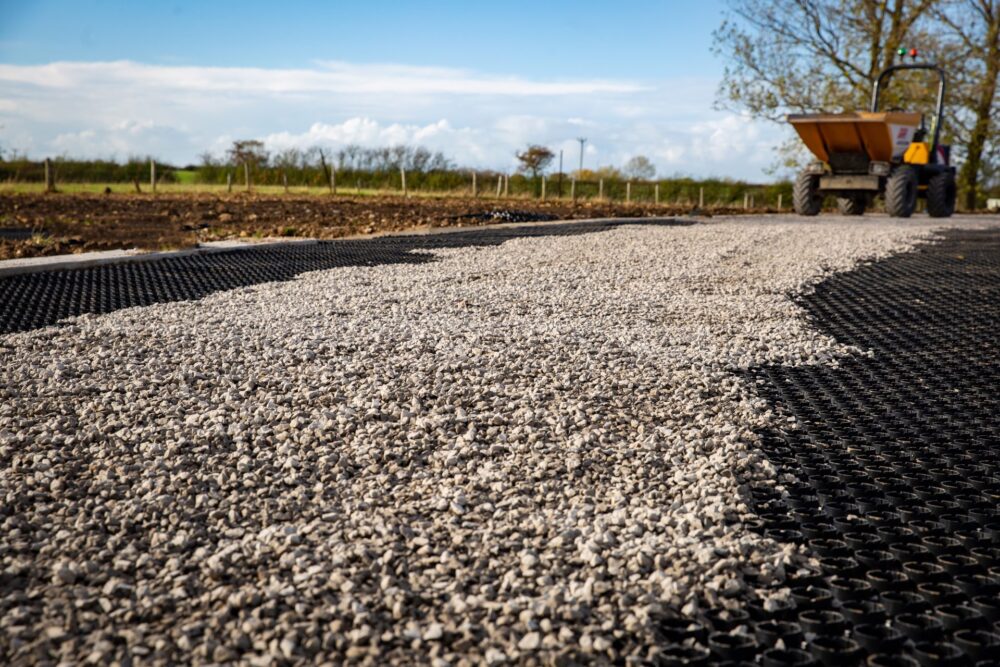In January this year, the Government published plans to make the incorporation of sustainable drainage systems (SuDS) mandatory in new developments in England, with plans to implement the legislation in 2024. Many landscapers and homeowners will already be aware of the environmental benefits of SuDs compliant systems. Given that the aim of them is to alleviate the pressures on traditional drainage and sewerage systems, and reduce the risk of surface water flooding, it makes sense to fully embrace the principles as soon as possible. Here we look at the pros and cons of the different SuDs compliant driveway options available.
Permeable asphalt
Asphalt driveways have been the cheap and cheerful default option for many years, though their dark car park tones are not popular with everyone. Whilst standard asphalt is not SuDs compliant, there is a permeable version available, albeit with quite a price tag.
A permeable asphalt driveway will require regular maintenance to prevent its pores from clogging and keep the surface permeable. Asphalt is sensitive to temperature changes so will need repairs to potholes and cracks which can be expensive. It’s unlikely to look the same after that because the repairs will appear patchy.
If the homeowner is concerned about sustainability, asphalt might not be at the top of their list – it is, after all, made from petroleum, so cannot be considered an eco-friendly option. As global temperatures climb, more and more people are becoming aware that asphalt traps heat, and releases harmful air pollutants as it warms up. Also, bear in mind that asphalt is not biodegradable – when an asphalt driveway reaches the end of its life, it is broken up and sent to landfill.

Resin-bound, not resin bonded
Resin-bound driveways can be a SuDs compliant option and are worth considering if there is significant budget available. It’s worth bearing in mind that ‘resin-bonded’ surfaces are often sold as ‘no-dig solutions’, but they are not SuDs compliant (yes, the names are confusingly similar!). The project owner may choose a SuDs compliant equivalent, which is ‘resin-bound’, assuming that this is also ‘no-dig’, but that is not the case, a sub-base will be required.
Resin-bound surfaces are believed to be a maintenance-free option, but it’s wise to advise the homeowner to be vigilant about spillages on the surface. Brake fluid is a highly corrosive substance which can damage resin-bound surfaces, and engine oil and tyre marks can create stains which look unsightly. They can be removed with the right treatment and some elbow grease, though care must be taken with a pressure washer as this can also damage the surface. However, those who pay the high price tag for a resin-bound driveway normally expect it to be worry-free.
Permeable concrete block paving
Even though it can be expensive and time-consuming to lay, block paving has long been a popular choice with homeowners because there are many possibilities in terms of pattern and colour. SuDs compliant block paving ensures that the pavers have wider and more open gaps between them to allow water to seep through. Most homeowners are surprised to learn that it’s the gaps that
permeable, not the pavers, and that the surface requires regular jet-washing to remove dirt and debris. This is because the gaps between the pavers inevitably become clogged, preventing water from passing through. Permeable block paving is not as long-lasting as other alternatives and the project owner should be made aware that its lifetime, even with regular maintenance, is probably about ten years.

Gravel grid systems
Gravel used in a grid system forms a natural, permeable surface that is maintenance-free. A good quality gravel grid system, such as Gravelrings, locks gravel in place with its honeycomb structure, creating a firm smooth surface which remains in place indefinitely – no need for contractors to return to site to fix annoying issues. Gravelrings has the added advantage of not using as much gravel as other gravel systems, reducing the overall cost of the project, and it can also be laid on slopes, depending on the gradient (contact our sales team for advice). Not only is Gravelrings a fully permeable surface and SuDs compliant, it’s also made from 100% recycled material which is 100% recyclable, UV stabilised and strong and flexible. A superb all-round eco-friendly option that is built to last!

Not all permeable surfaces are sustainable
Permeable surfaces play a key role in creating SuDs compliant systems that help to get rainwater back in the ground where it should be. As well as preventing flooding, it helps to improve water quality by filtering pollutants and helps to sustain the local water table, which benefits flora and fauna.
In addition to making sure that any new driveway is permeable, identifying how much effort it takes to keep it permeable, and how long it lasts (and therefore how sustainable it is) are also key considerations. As homeowners become better informed on the impact of their choices on the environment, it makes sense for landscapers to become proficient in answering any questions or environmental concerns they may have about the materials and systems being used.
To discuss SuDs compliant driveway solutions with a friendly member of the Beauxfort team get in touch here.



